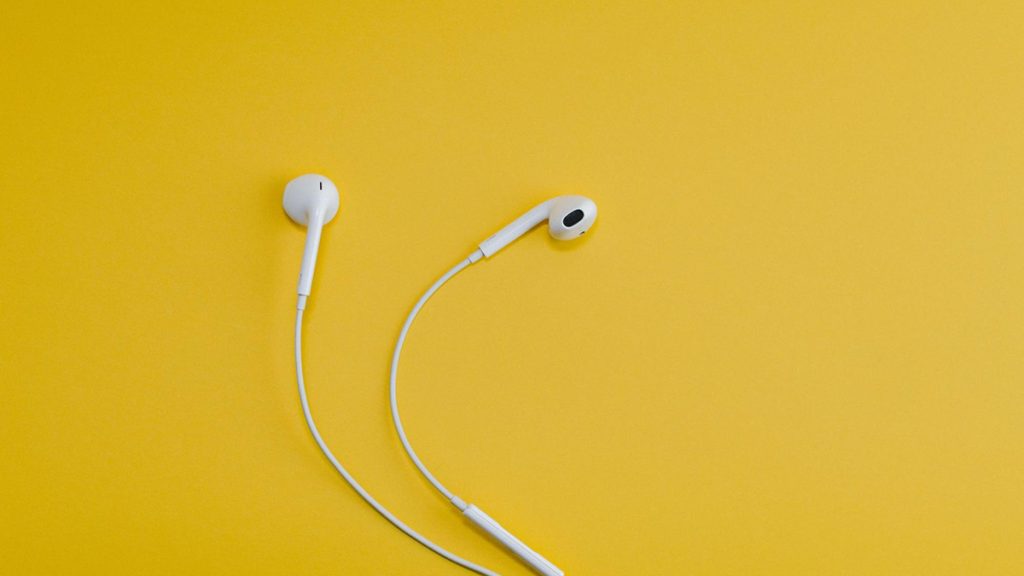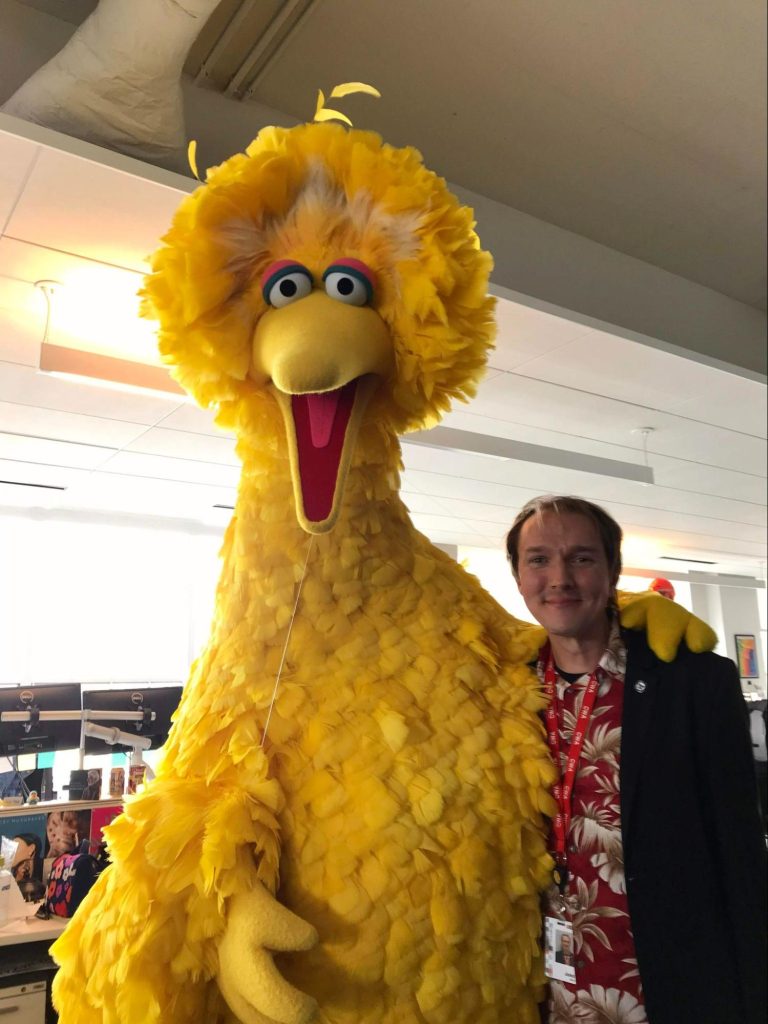
What to consider before using enhancing tools to clean your audio
A conversation with audio engineer James Willetts

James Willetts has dealt with his fair share of rough audio in his over 20 years as an audio engineer. From music to podcasts and radio shows, Willetts has worked to refine audio for better quality, sound and listener experience. Willetts previously worked on NPR’s Tiny Desk Concerts, including the Sesame Street performance in 2019, when Willetts met Big Bird. Currently, Willetts freelances for podcasts and works for NPR’s radio shows, including Rough Translation and Planet Money.
After we tested AI audio enhancers, we spoke with Willetts about his advice for recording quality audio and his perspective on new audio enhancement tools.
Cibulskis: What are some of your best practices for gathering audio in the field?
Willetts: The number one thing for somebody coming from other types of journalism is to listen. Just listen to as much audio as you can and figure out why you like this one and why you don’t like that one. If you’ve got your own favorite pair of headphones, listen to music on them, listen to podcasts on them. Listen, listen, listen. So that way you hear good stuff. If your audio sounds the way you like it here, then you know you’re on the right track.
Cibulskis: What about on the producing side?
Willetts: Sometimes audio sounds gross and there’s not a lot you can do with it. You can add narration to it like: ‘So and so is coming to us from the back of her car, in front of the wildfire.’ I like to be behind the curtain when that stuff happens, and that’s just me as a listener. I can get a visual picture: you’re talking to me, you’re describing it to me, and I’m like ‘Oh yeah, the beat up Jeep with the hole in the floor and the wind in the leaves.’ Then I can forgive a lot more of that stuff without having to feel like it’s going to get fixed.
Cibulskis: How did you develop your strategies for successful audio?
Willetts: I try to have a wildcard whenever I’m doing a music session. Like what’s something that I haven’t tried before? And I try and find a way to stretch my little wings.
Stuff breaking on you will make you remember to carry a backup. I think I was eight years old and someone said in front of me, ‘Young people don’t listen to their elders, they have to make their own mistakes.’ And I remember thinking ‘that’s dumb,’ but I think the word that I meant was inefficient. So when I hear these stories from other engineers and reporters such as ‘there was that time when this happened and this broke,’ then I think – how do I keep that from happening to me? I think it is learning to be open to growing and learning new things.
Cibulskis: What benefits and drawbacks do you think audio enhancers can bring to the work?
Willetts: Sometimes you can’t get rid of the noise, but you can increase that distance between the desirable sound and the undesirable sound. It’s on the user. It’s about quality assurance and checking behind that software to make sure it’s not overdoing it. I’m always going to say if you have the budget to have a person whose gig is sound, that’s going to be much better than trying to edit out stuff in a program afterwards – any day of the week. I think, especially in the beginning, it’s about learning what it’s good at and what it’s not good at.
Cibulskis: Do you think there’s a need to consider the ethics of using enhancers on poor quality audio?
Willetts: I would love for every podcast to sound as good as it possibly can. I do understand the importance of informing the public. It’s a valve and you’ve got to just always have your hand on it in the case that you can do the best work. You have to know you can’t scare people off by sounding gross, having too many ads… you have to sustain the business and keep information out there. It needs human judgment and it will always need that. At least a person that can make that call.
Cibulskis: What editing programs do you think are best for beginners? Why?
Willetts: As for which DAW (digital audio workspace), I can’t say I personally endorse one program over the other, because the most important thing anyone needs to consider is getting your project from place to place, and how much support you have in your network or office for the tools you use. That is to say, where is your project coming from, and do you know how to get the folks at the other end what they need when you deliver your project? You could use one of the big ones like ProTools or Adobe or Cubase, and even if there are a ton of videos on YouTube or LinkedIn Learning or whatever, you’re going to have to make a judgment call on if you are okay if you happen to be the only person using that particular DAW.
So my advice is to use what your closest colleagues are using. If your workplace is using a particularly obscure DAW, then grab something else inexpensive and give yourself time to tinker with it once in a while. That way you can keep a firm grasp of the basic principles behind all DAWs in the event you need to work for a different outlet and learn their software in the future.
Cibulskis: Do you have a favorite editing program? What makes it easy to use for you?
Willetts: ‘ve used ProTools, Nuendo/Cubase, Adobe Audition, Logic, Digital Performer, and DAVID Systems’ MTE (Multitrack Editor). I also count iZotope RX as a DAW, since I’ve been able to do a lot of work there. I get most of the features I need out of ProTools, because I’ve used it for so long and know it really well. There are definitely some things I wish I could do in there as easily as I can in Audition, and I tend to still do a lot of work in RX outside of the session if I’m handed something in ProTools. I guess you could say I need a three-car garage.
And they’re all easy for me, at this point. I haven’t always been the one to make that choice. By the time it gets in my hands the producers have already chosen their DAW, and my job is to push it over the finish line.
Cibulskis: Do you have a singular best piece of advice for journalists looking to improve their sound?
Willetts: Listen. Learn. Ask for help. If I was to break that down, listen to what you’re doing while you’re doing it. Listen to good stuff and learn what you like. Learn your headphones, learn your gear, learn your stuff, that’s all listening. Learn and grow and always be willing to try new tricks. Always be willing to try a new technique with whatever tools you’ve got. The ultimate goal is when the equipment disappears and it’s just you and the other person – when it’s the listener in your story. It’s that transcendental moment where there’s no technology in between us.
Sign up for the Innovation in Focus Newsletter to get our articles, tips, guides and more in your inbox each month! Editor’s Note: This interview has been edited for clarity and brevity.
